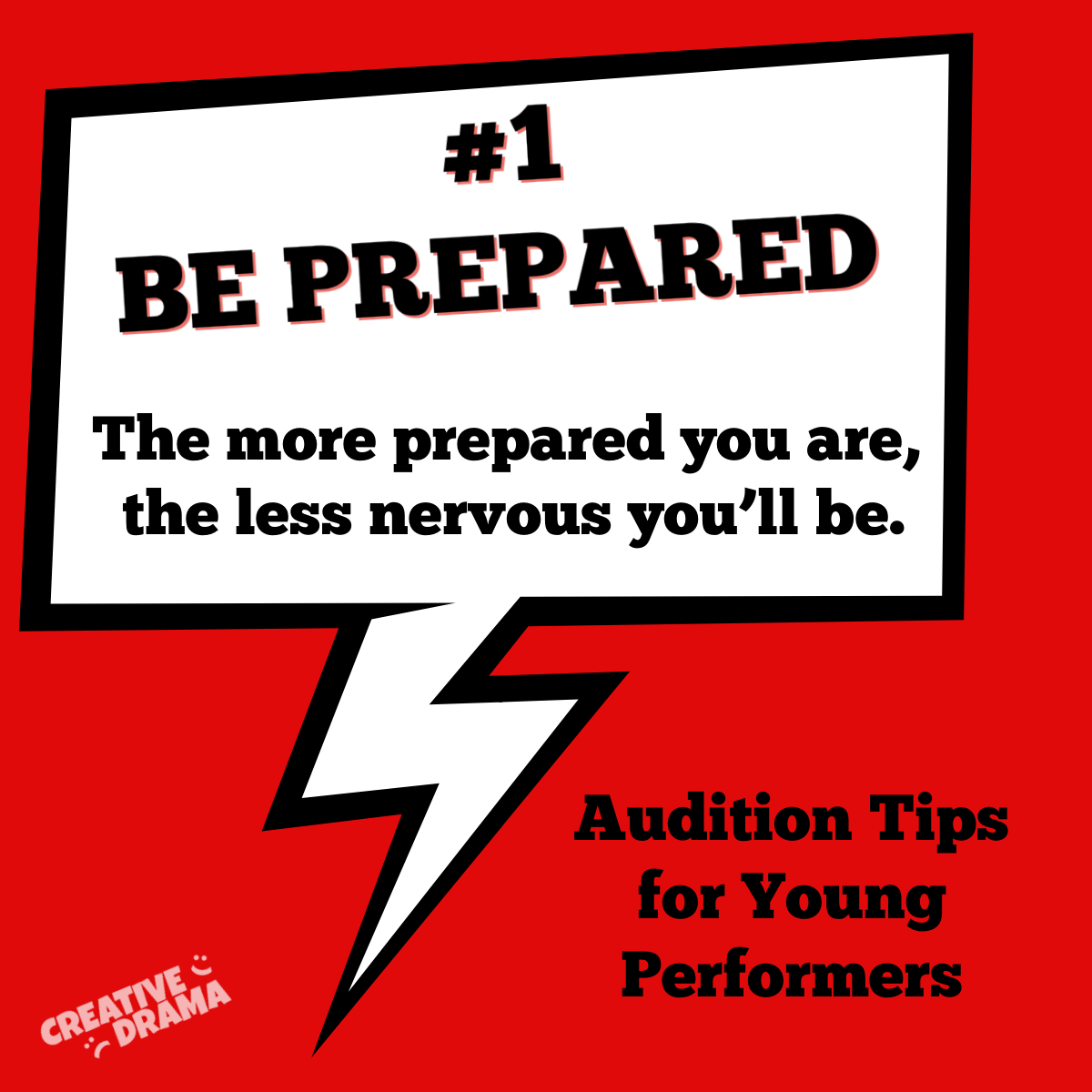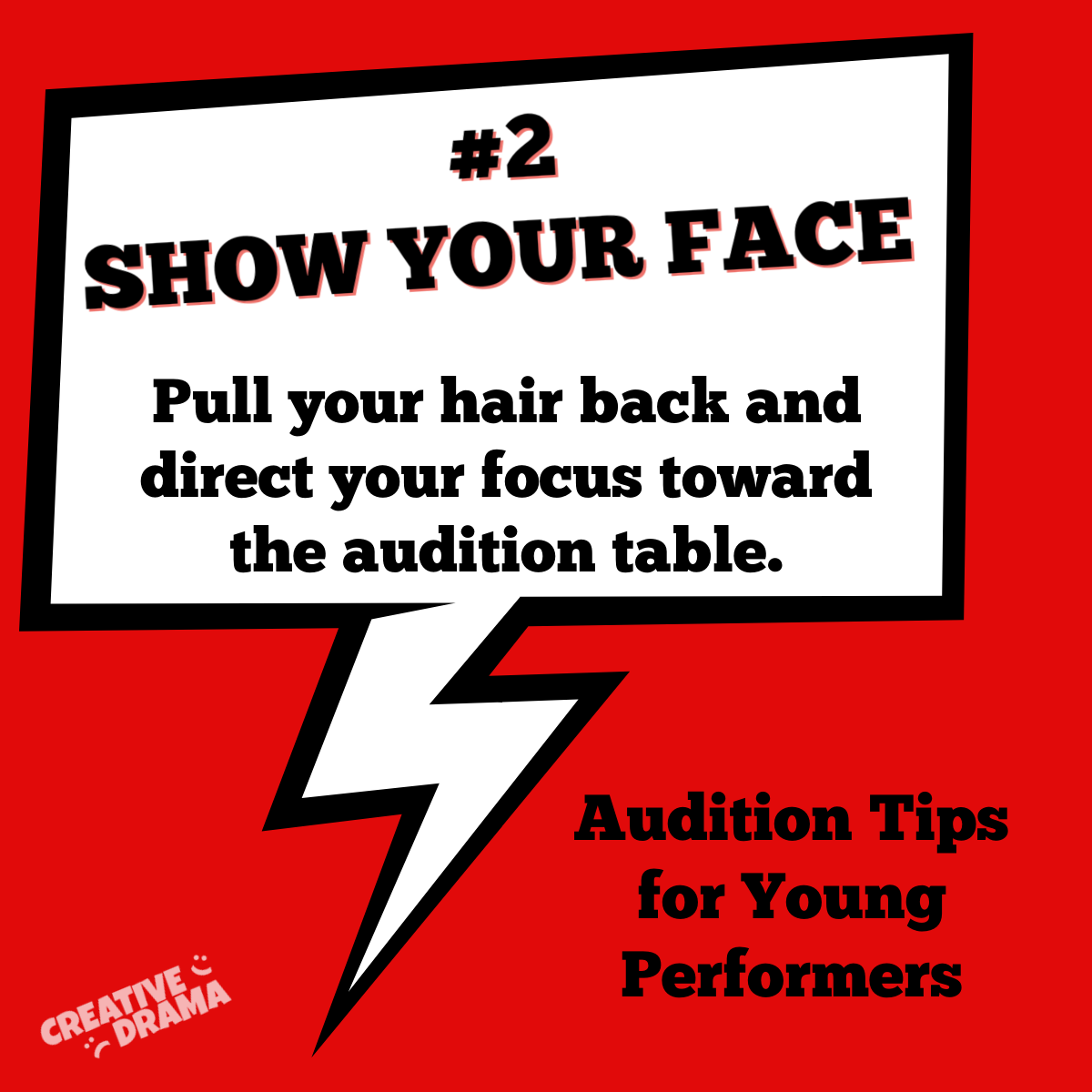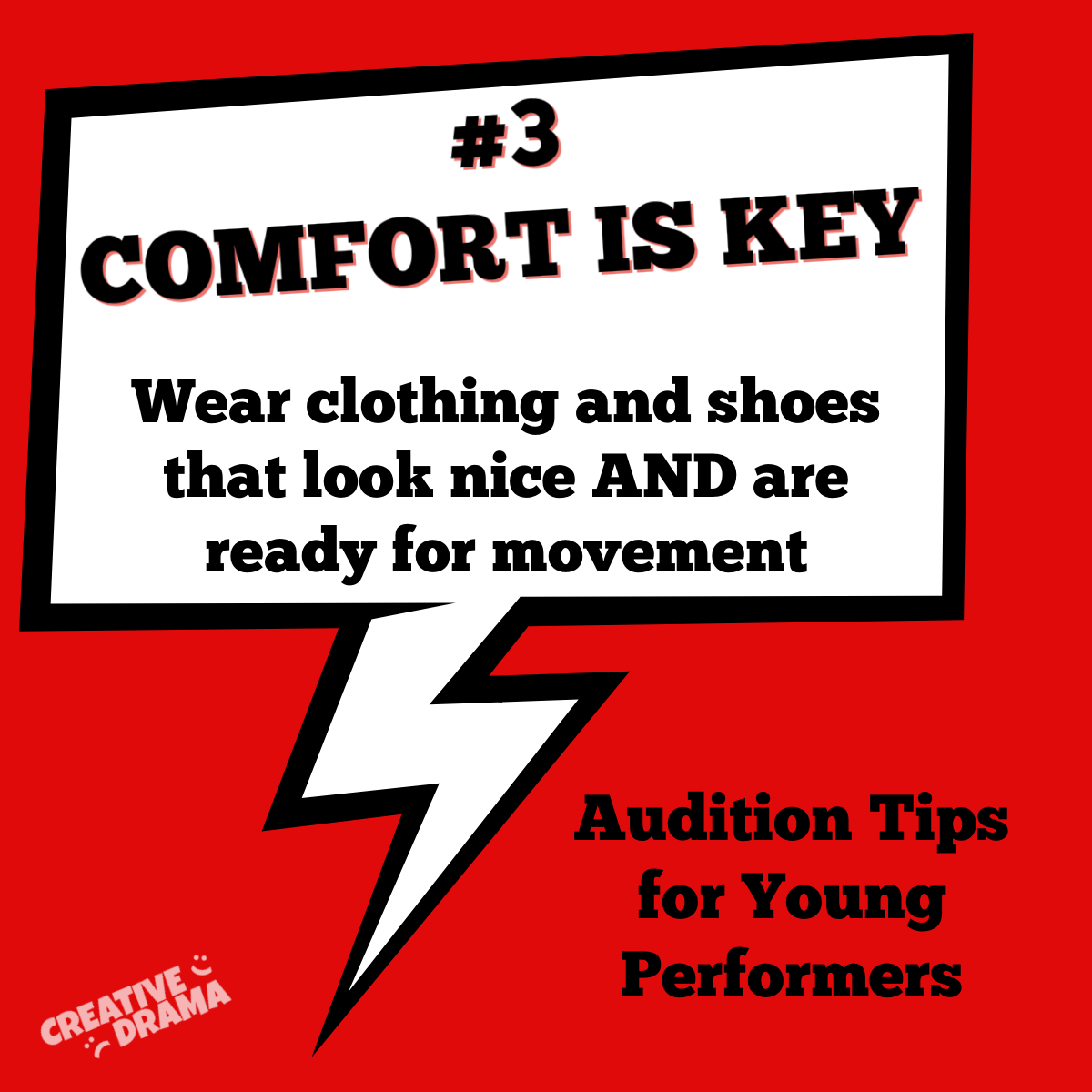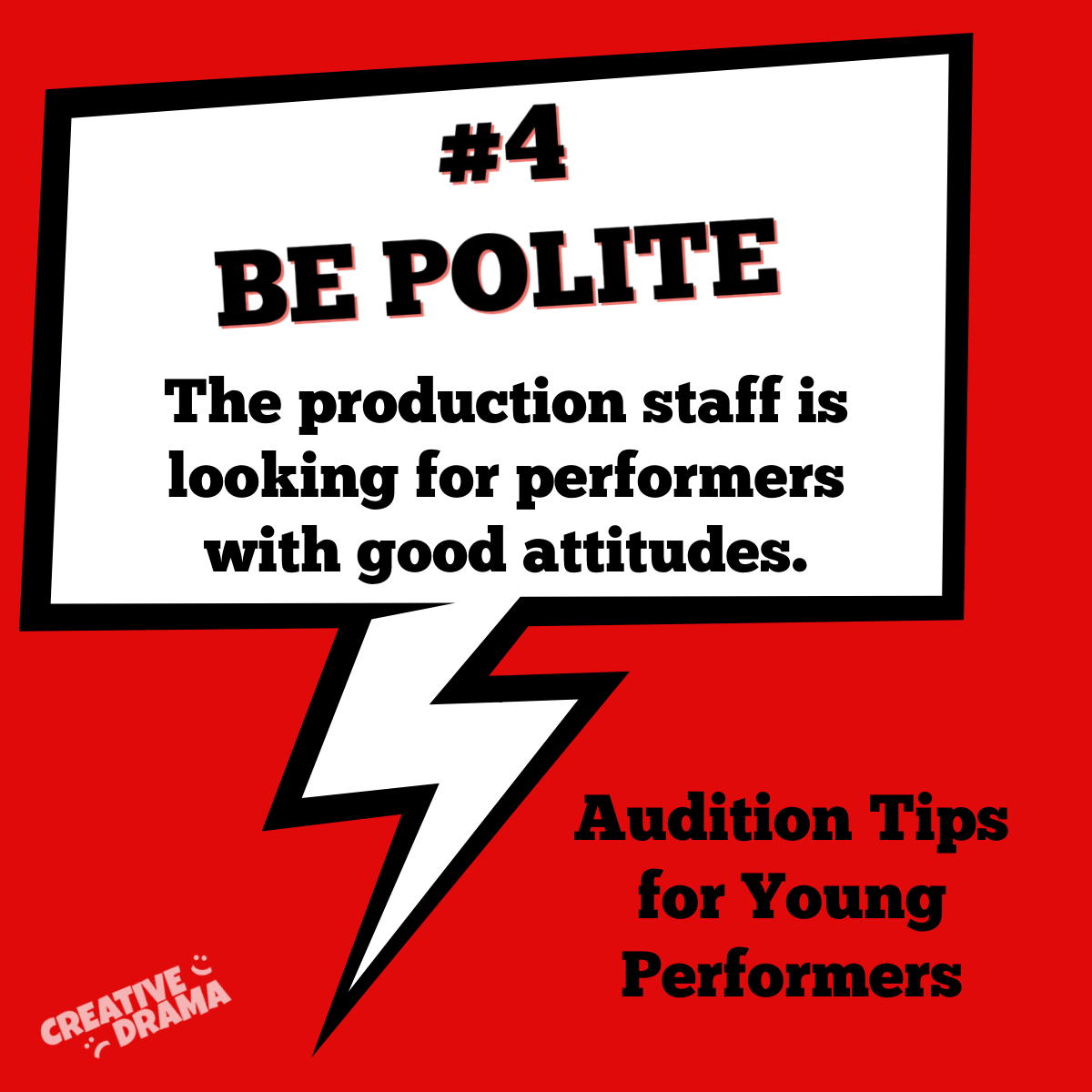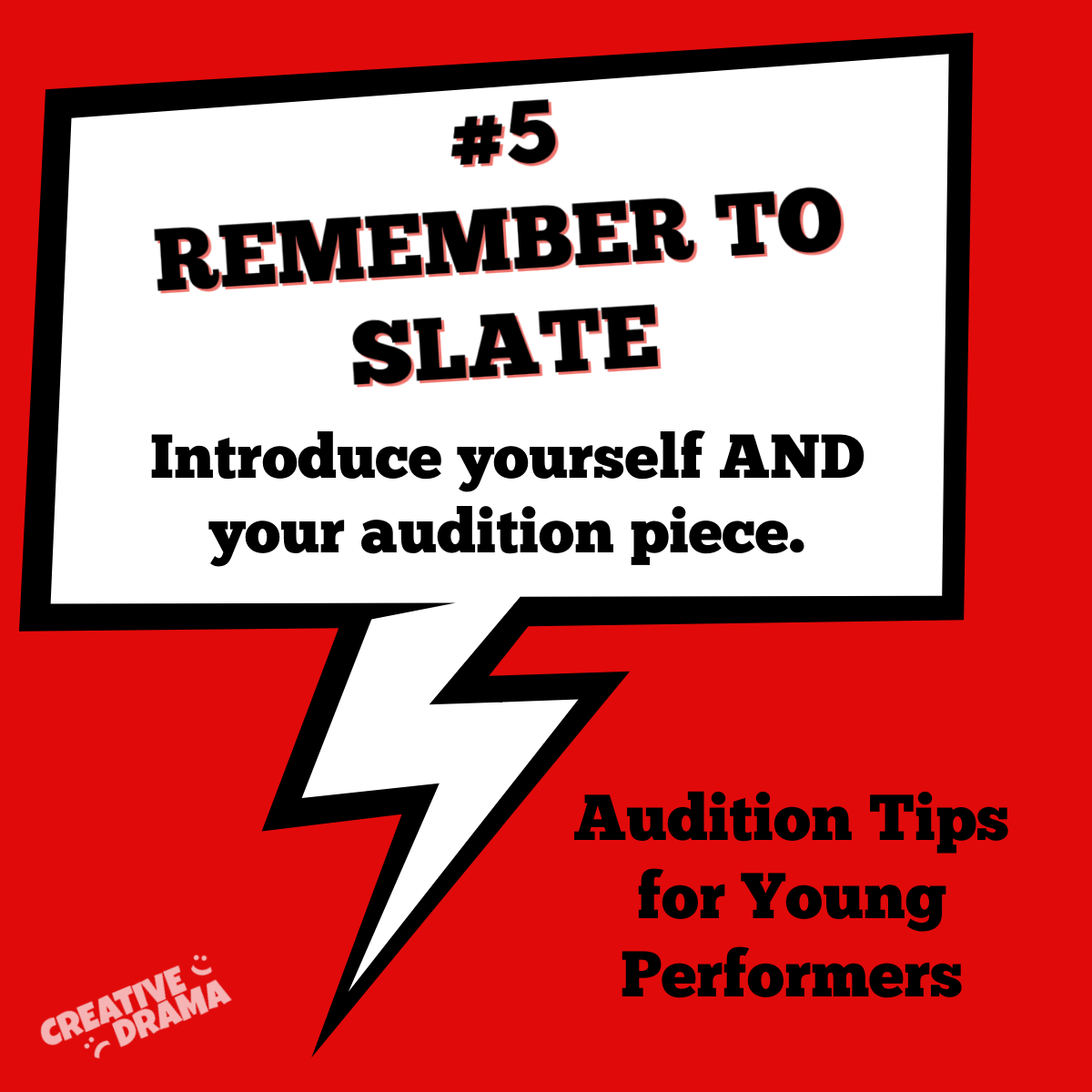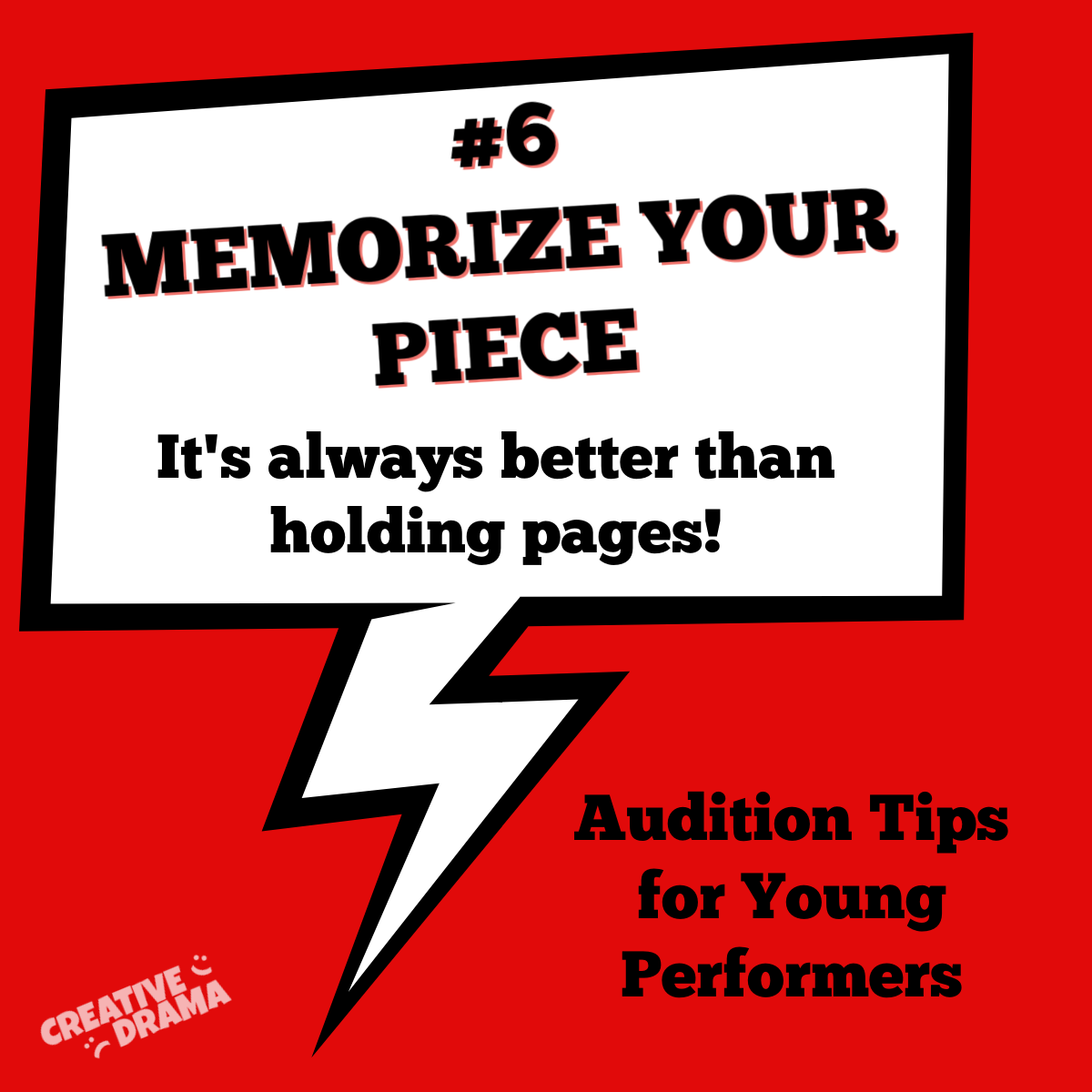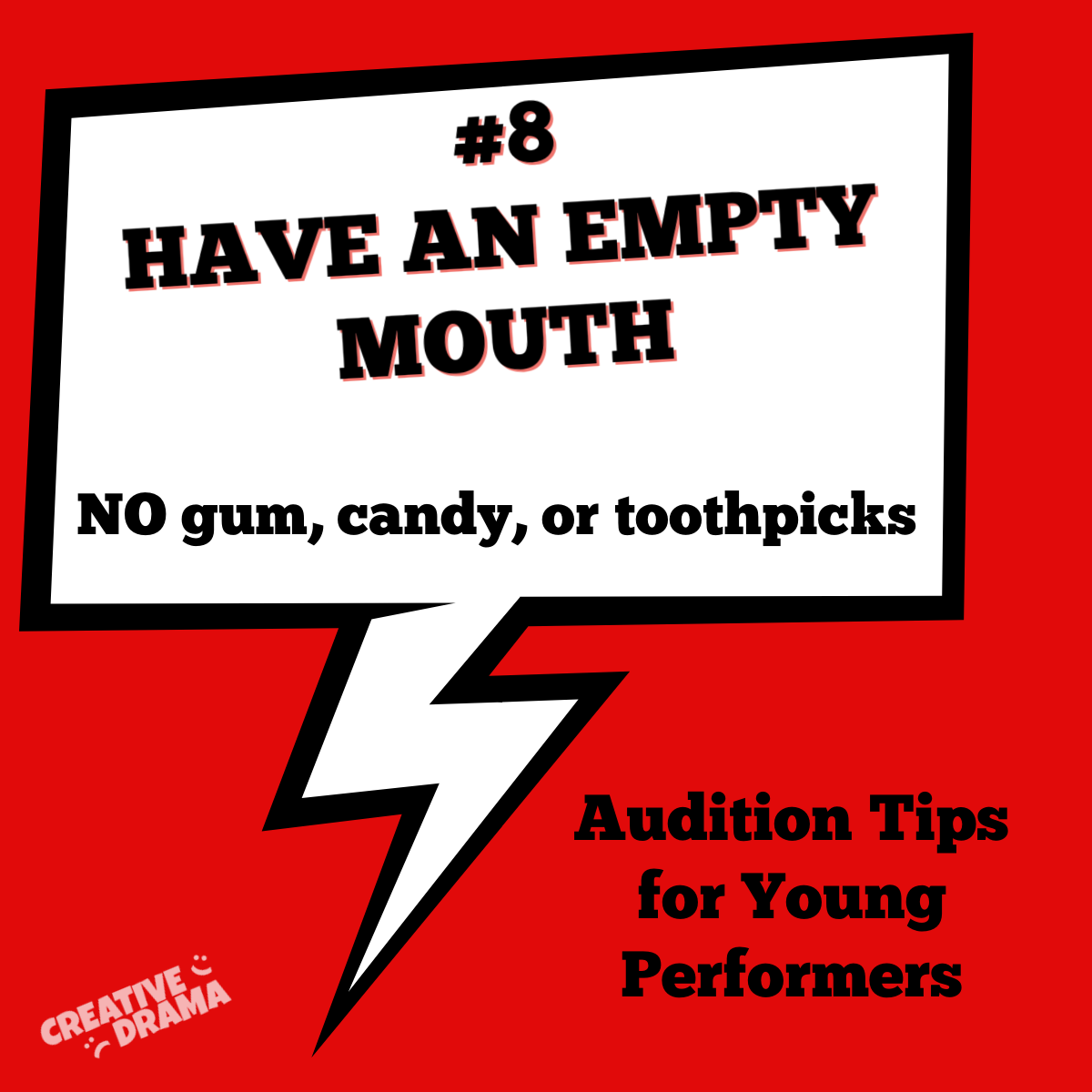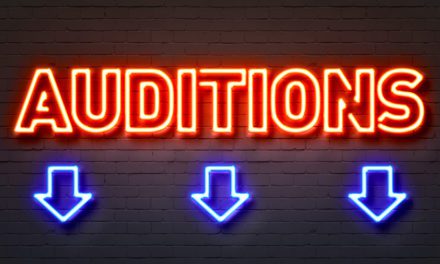Here’s some advice for young performers auditioning for school and community productions (or for their parents looking for help!).
Contents
Find out as much as you can about the auditions.
Sometimes there will be an audition meeting where the process and requirements are explained in detail. If there is, GO TO IT and LISTEN (take notes, even!).
Other times, a notice will be posted online (or on your school’s call board) telling dates, times, and requirements for the auditions. You might want to ask others who have auditioned for the company/teacher-director before what to expect. You should also ask the director or stage manager if you have questions – it’s a good chance to introduce yourself prior to the audition.
What if I have to find a song?
If you have to pick a song yourself, here are some places you can find sheet music:
o Your public library – Dewey Decimal Numbers 782.8 and 782.14 for Broadway show tunes, 784.4 and 784.5 for folk and popular music.
o A local music store
o Online retailers – search “Broadway Sheet Music” or “Broadway Vocal Selections”
Often, you’ll have to perform 16 Bars of the song. That means 16 measures. For a song written in 4/4 time, 16 measures equals 64 beats.
What if I have to find a monologue?
Don’t worry; you’re capable of finding one! See our How to Choose a Monologue post.
What about cold readings?
Sometimes, instead of having monologues or songs for an audition, the director will hold a cold reading. During a cold reading, you will receive “sides”, or selections from the script, and be asked to perform the selection with another actor after having a few minutes to look over the scene. Cold readings are more likely to occur during callbacks than for initial auditions. The best advantage you can have during a cold reading is familiarity with the play. However, there may be occasions when you are confronted with a script you have never seen before. You will just have to read over the script, make an educated decision about how you’re going to play the character, and then stick to that decision. Engage the other actor(s) in the scene as much as possible and try to incorporate some logical movement into your reading.
What about dance auditions?
For musicals, the choreographer will likely teach a dance combination (a sequence of different steps). You’ll have a little while to learn the combination, and then you’ll perform it (often in small groups).
If you’re not a trained dancer, do your best to learn and execute the steps correctly. When it’s time to perform, project confidence and smile (if it’s appropriate to the dance).
If you are a trained dancer, bring appropriate shoes – the audition instructions often tell you if there’s tap, ballet, or hip-hop choreography in the show.
Audition Forms
If audition forms are available ahead of time, it’s because the production staff doesn’t want to waste time having people fill them out during auditions. Fill it out completely, neatly, and honestly.
If it’s on paper, keep it in a special folder until the auditions (make a copy!). Do not lose it, fold it into an origami swan, or crumple it up in the bottom of your locker.
Put some thought into your audition look.
There are no magic outfits or hairstyles that will guarantee a part for you. But you should make sure that you wear clothes in which you feel confident, can move well, and look good. Don’t wear excessively baggy or tight clothes. Wear shoes that you can walk in confidently. Make sure your hair is not hanging in your face – you’ll be covering up something all directors want to see. If you usually wear makeup, make sure that it enhances your face and does not block your features. Any jewelry should not interfere with your performance (i.e. making noise, getting caught on your sleeve, being so large that it’s the only thing the director will watch).
Conduct yourself admirably during auditions.
Be on time and prepared. Follow any directions that are given to you. If audition forms have not been available until now, fill out the audition form as neatly and completely as possible (see here for an example of what an audition form looks like). If the audition space has everyone watching, watch quietly until it is your turn. If the other auditionees and director(s) applaud after auditions, do so, but quietly and politely.
Project a confident air – but don’t brag or put down other hopefuls. Be on the lookout for people who need help moving things or passing out papers. Many directors will choose someone with less talent who is cooperative and polite over someone who is difficult but extremely talented. This may be the first impression the director has of you – make sure it is a positive one.
Do your best onstage. (or in front of the audition table.)
The first and most important thing to do once you are onstage is to introduce yourself and what you will be performing. If you forget, you might hear the direction “slate yourself” – that’s a reminder to say, “I’m [NAME] and I’ll be performing [AUDITION PIECE].” Then you perform your audition. Signal when you are finished by saying “Thank you”. Wait for any questions that the director may have for you, answering them the best you can. If they ask “Can you show us a cartwheel (or a particular accent, dance step, etc.)?” try your best, or at least tell them you’re a fast and willing learner.
What if somebody does the same audition piece as me?
Don’t worry! It’s expected if the theatre gives out material ahead of time. If not, director has probably seen a lot of pieces more than once. Your interpretation of an audition piece is just as useful to a director whether everyone else has done the same selection or not.
What if I’m not as good as everyone else?
First, it’s difficult to judge an audition that you have not seen (namely yours). Second, your opinion, or the opinions of other hopefuls, may not be the opinion of the director. If you do your best at your audition, that’s the best you can do.
And here’s a secret: the best way to get better at auditions is to keep auditioning. If you don’t get cast, it’s because you weren’t right for that production, or for that production right now.
What if I mess up?
If you make a mistake during the audition, the best thing you can do is to “keep calm and carry on.” If you can cover it, try it look like whatever you did was planned. A director may not be familiar enough with your piece to recognize a mistake – and even if it’s noticed, an actor who can keep his cool under pressure can score bonus points.
If you do mess up, try to avoid the following:
- yelling “OH MY GOD! I MESSED UP! I STINK!”
- running off the stage
- collapsing in tears
If you are really worried before your audition about making a mistake, visualize what you could do if that in fact happens. Then you’ll be prepared just in case!

